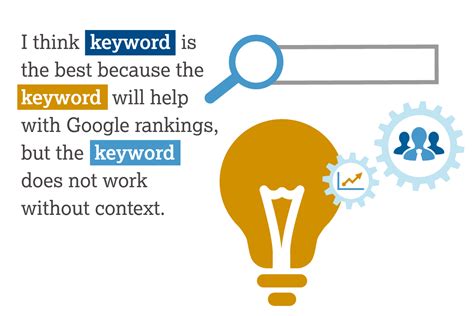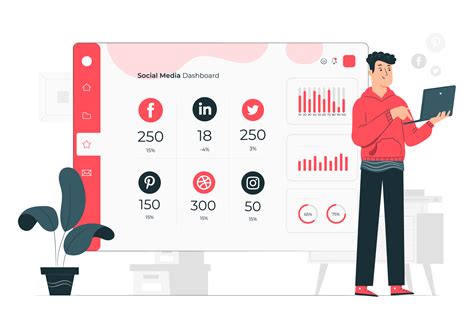Enhancing your online presence and climbing the ranks of search engine results pages can seem like a formidable challenge. However, with the right strategies and approaches, you can significantly boost the visibility of your website and attract more organic traffic. In this article, we will explore some powerful techniques that can help optimize your website for search engines, ensuring that your target audience can easily find and engage with your content.
1. Craft captivating content: Creating high-quality and engaging content is paramount when it comes to improving your website's search engine ranking. Ensure that your articles, blog posts, and product descriptions are well-researched, informative, and cater to the interests and needs of your target audience. By providing valuable content that answers their questions or solves their problems, you will not only enhance your website's relevancy but also increase the likelihood of attracting backlinks and social shares.
2. Optimize your website's performance: The speed and performance of your website play a crucial role in search engine optimization (SEO). Slow-loading pages not only frustrate visitors but also hinder your ranking potential. To optimize your website's performance, compress images, minify CSS and JavaScript files, and leverage browser caching. Additionally, consider using a Content Delivery Network (CDN) to ensure that your website's content is served from servers located closest to the user, reducing latency and load times.
3. Pay attention to on-page SEO: On-page SEO refers to the optimization techniques applied directly on your website to improve its visibility in search results. This includes optimizing meta titles and descriptions, adding relevant headers (H1, H2, etc.), incorporating targeted keywords naturally throughout your content, and using descriptive URLs. A well-structured and keyword-rich webpage signals to search engines what your content is about and increases the chance of ranking higher for relevant search queries.
4. Build quality and relevant backlinks: Building a strong network of reputable and relevant websites that link back to your content is a proven method to improve your website's authority and search engine ranking. Invest time in outreach, guest posting, and networking with fellow bloggers or industry influencers. Aim to acquire backlinks from websites that are both authoritative in their niche and relevant to your content, as this can significantly boost your website's credibility in the eyes of search engines.
5. Embrace mobile responsiveness: With the increasing use of smartphones and tablets for browsing the internet, having a mobile-friendly website is no longer an option but a necessity. Search engines prioritize mobile-friendly websites and tend to rank them higher in mobile search results. Ensure your website adopts a responsive design that adjusts seamlessly to different screen sizes, providing an optimal browsing experience for mobile users.
In conclusion, improving your website's search engine ranking involves a combination of well-crafted content, technical optimizations, and strategic link-building efforts. By following these techniques, you can enhance your website's visibility, attract more organic traffic, and ultimately increase your online success.
Understanding the Significance of Keywords in SEO

In order to navigate the vast digital landscape and effectively optimize your website for search engines, it is imperative to have a comprehensive understanding of keywords and their role in search engine optimization (SEO).
Keywords are specific words or phrases that accurately represent the content, products, or services offered on your website. They act as the bridge connecting your target audience to your website when they conduct online searches.
Importance of Keywords in SEO
Keywords play a pivotal role in determining your website's visibility and search engine rankings. When search engines crawl your website, they analyze the keywords present in your content to assess its relevance to users' search queries.
Effective keyword research and implementation are vital for several reasons. Firstly, they help search engines understand what your website is about, enabling them to index and categorize it appropriately. Secondly, relevant keywords increase the likelihood of your website being displayed in search engine results pages (SERPs) when users search for related topics.
Keywords also impact other aspects of SEO, such as on-page optimization and link building. By strategically incorporating keywords into your website's meta tags, headers, and content, you can enhance its visibility and attract organic traffic.
To optimize your website's SEO, it is crucial to conduct thorough keyword research. This involves identifying the phrases and terms frequently used by your target audience when searching for information, products, or services related to your website.
By choosing the right keywords and utilizing them appropriately in your website's content, you can improve its search engine rankings and attract relevant organic traffic.
Conclusion
In summary, developing a solid understanding of keywords and their importance in SEO can significantly boost your website's visibility and relevance in search engine results. By conducting thorough research, strategically implementing keywords, and regularly reviewing and updating your SEO strategy, you can optimize your website's performance and attract the right audience.
Creating High-Quality and Relevant Content
In today's digital landscape, the key to achieving a prominent online presence lies in the creation of high-quality and relevant content. The significance of creating content that engages, educates, and entertains cannot be understated. It not only attracts and retains the attention of readers but also helps in establishing credibility and authority within the industry.
When it comes to creating high-quality content, it is essential to focus on providing value to the target audience. This can be achieved by addressing their pain points, answering their questions, and offering practical solutions. By doing so, you can establish yourself as a trusted source of information, thereby strengthening the relationship with your readers.
- Research and Understand Your Target Audience: Before creating any content, it is crucial to gain a deep understanding of your target audience. Research their demographics, interests, preferences, and behavior to tailor your content accordingly. This will ensure that your content resonates with them and meets their specific needs.
- Create Original and Unique Content: Strive to produce content that is fresh, original, and stands out from the competition. Avoid plagiarism and present information in a unique and engaging manner to captivate your audience's attention.
- Provide In-Depth Information: Rather than skimming the surface of a topic, aim to provide comprehensive and in-depth information. Conduct thorough research, gather relevant data and statistics, and present it in a concise yet informative manner. This will portray you as an authoritative figure in your field.
- Optimize Content for SEO: Implementing search engine optimization techniques can significantly boost the visibility and discoverability of your content. Focus on incorporating relevant keywords, writing compelling meta descriptions, optimizing headings, and ensuring a seamless user experience.
- Keep Content Updated: To maintain relevance and credibility, regularly update your content as new information emerges. This shows your dedication to providing accurate and up-to-date information to your readers.
In conclusion, creating high-quality and relevant content is a fundamental aspect of improving your website's search engine visibility. By understanding your target audience, generating original and valuable content, and optimizing it for SEO, you can enhance your online presence and attract organic traffic to your website.
Improving Search Visibility by Enhancing Metadata

In the digital landscape, optimizing metadata plays a crucial role in enhancing the search visibility of your web pages. Metadata, consisting of title tags, meta descriptions, and other key elements, provides important information to search engines and influences how your website appears in search results.
When it comes to title tags, it is essential to craft concise yet compelling titles that accurately reflect the content of the page. Consider incorporating relevant keywords in the title, as they assist search engines in understanding the context of your webpage.
Another critical aspect of metadata optimization is the creation of compelling meta descriptions. These snippets of text, which appear beneath the title in search results, offer a brief summary of the page's content. By crafting unique and compelling meta descriptions, you can entice users to click on your website, increasing click-through rates and overall visibility.
Take advantage of structured data markup to provide additional context to search engines. This markup language allows you to specify the type of content on your page, such as articles, products, or events, in a way that is easily understood by search engines. By implementing structured data markup, you can enhance the appearance of your website in search results, potentially attracting more visitors.
Regularly reviewing and updating your metadata is essential to staying competitive in search engine rankings. As search algorithms evolve, it is important to adapt your metadata strategy accordingly. Analyze the performance of your metadata, experiment with different approaches, and monitor how changes impact your search visibility.
| Advantages of Optimized Metadata |
|---|
| Increased search visibility |
| Improved click-through rates |
| Enhanced website appearance in search results |
| Better understanding of page content by search engines |
In conclusion, optimizing metadata is a critical aspect of improving search visibility for your website. By crafting compelling title tags, enticing meta descriptions, and utilizing structured data markup, you can enhance your website's appearance in search results and attract more visitors. Regularly reviewing and updating your metadata strategy is important to ensure its effectiveness in the ever-changing digital landscape.
Improving your website's position through the creation of high-quality inbound links
Enhancing your website's visibility in search results requires a strategic approach to link building. By cultivating a network of authoritative and relevant backlinks, you can significantly improve your website's ranking on search engine result pages.
When it comes to building quality backlinks, focus on establishing connections with reputable websites in your industry. Seek out opportunities for collaboration and partnership with like-minded businesses and organizations. By engaging in guest blogging, contributing valuable content to other websites, and participating in industry forums, you can showcase your expertise and gain valuable inbound links.
Another effective method for building high-quality backlinks is through the creation of compelling and shareable content. By developing informative articles, engaging infographics, or captivating videos, you increase the likelihood of other websites linking to your content. This not only drives traffic to your website but also signals to search engines that your content is valuable and trustworthy.
Additionally, leveraging social media platforms can greatly enhance your link-building efforts. By actively engaging with your target audience on platforms such as Facebook, Twitter, and LinkedIn, you can attract attention to your website and encourage others to share your content. This, in turn, can lead to more inbound links from authoritative sources.
Remember, it's not just about the quantity of backlinks, but also the quality. It's crucial to prioritize links from websites that are relevant to your industry and have a strong reputation. Avoid engaging in link-building practices that violate search engine guidelines, as this can result in penalties and a decline in your website's ranking.
In conclusion, building quality backlinks is an essential aspect of improving your website's search engine position. By establishing relationships with reputable websites, creating valuable content, and utilizing social media, you can enhance your online visibility and drive more organic traffic to your site.
Enhancing SEO Performance through Social Media

Social media platforms help improve the visibility and performance of your online presence, ultimately contributing to better search engine optimization (SEO). Efficiently utilizing these platforms can significantly enhance your website's online visibility, leading to improved organic traffic and higher search engine rankings.
Build a Strong Social Media Presence: Engaging and growing your social media following is essential for maximizing your website's SEO performance. By consistently creating and sharing high-quality content, you can establish yourself as an authoritative figure and attract a larger audience.
Optimize Your Content for Social Sharing: To increase the chances of your content being shared on social media, make sure it is easily shareable by incorporating share buttons or widgets on your website. Additionally, make your content visually appealing, compelling, and relevant to encourage users to share it with their networks.
Utilize Social Signals: Social signals, such as the number of likes, shares, and comments on your social media posts, can positively impact your search engine rankings. Encourage engagement by asking questions, creating polls, and actively responding to comments and messages.
Utilize relevant Hashtags: Hashtags categorize and group similar content on social media platforms. Incorporate relevant and trending hashtags in your posts to increase visibility and reach a wider audience interested in your industry or niche.
Collaborate with Influencers: Partnering with influencers in your industry can significantly boost your website's SEO performance. When influencers share and promote your content, it not only increases its visibility but also establishes credibility and trust among their followers.
Monitor and Analyze Performance: Regularly monitor and analyze your social media performance to identify what strategies are working and where improvements can be made. Use analytics tools to track metrics such as engagement, reach, and referral traffic to optimize your social media efforts.
Engage with Your Audience: Actively engaging with your social media audience helps foster trust and loyalty. Respond to comments, address concerns, and participate in relevant conversations to build a strong community around your brand.
By employing these social media strategies, you can effectively enhance your website's SEO performance, increase organic traffic, and ultimately improve your search engine rankings.
FAQ
How can I improve my website's search engine ranking?
There are several tips you can follow to boost your website's search engine ranking. One important step is to optimize your website's content with relevant keywords. You should also ensure that your website has a user-friendly design and is mobile-responsive. Additionally, building high-quality backlinks to your website from reputable sources can also help improve its ranking. Regularly updating your website with fresh and engaging content is another effective strategy.
What is the role of keywords in improving search engine ranking?
Keywords play a crucial role in improving search engine ranking. Proper keyword research helps you identify the terms and phrases that your target audience is using to search for information related to your website. By incorporating these keywords strategically throughout your website's content, meta tags, and headers, search engines can better understand the relevance of your website to specific search queries. However, it's important to use keywords naturally and avoid overstuffing, as search engines can penalize websites for using manipulative techniques.
Why is having a user-friendly website design important for search engine ranking?
A user-friendly website design is important for search engine ranking because it enhances the overall user experience. Search engines nowadays prioritize websites that are easy to navigate, load quickly, and have responsive design for mobile devices. A website that is visually appealing and provides a seamless browsing experience tends to have lower bounce rates and higher engagement metrics, which are positive signals for search engines. Optimizing your website's design can lead to higher search engine rankings and increased organic traffic.
How can building backlinks help improve my website's search engine ranking?
Building backlinks refers to getting other websites to link back to your website. Search engines view backlinks as a sign of credibility and authority. When reputable websites link to your content, it indicates to search engines that your website provides valuable information. However, it's important to focus on quality rather than quantity when it comes to backlinks. High-quality backlinks from authoritative websites have a greater positive impact on your search engine ranking than numerous backlinks from low-quality sources.
Why is regularly updating content important for search engine ranking?
Regularly updating your website with fresh and engaging content is important for search engine ranking for several reasons. Firstly, search engines prefer websites that provide up-to-date and relevant information to their users. By consistently publishing new content, search engines are more likely to visit and index your website on a regular basis. Moreover, informative and valuable content attracts more visitors, encourages them to stay longer on your website, and increases the chances of sharing and linking, which ultimately improves your search engine ranking.



